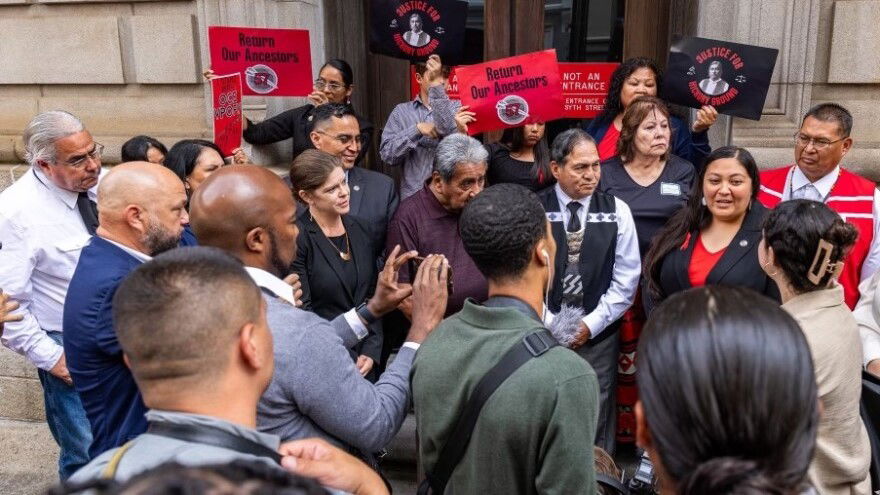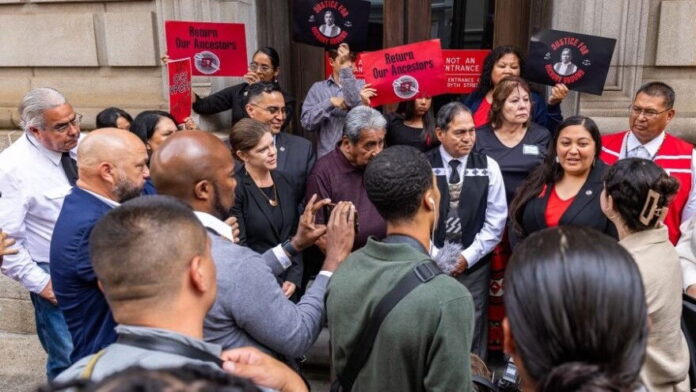
A long-standing conflict between two Native American tribes has escalated into a legal battle over the construction of a casino on land in Alabama, with the case being heard by a federal appeals court on Wednesday. The dispute centers on Hickory Ground, land that holds historical and spiritual value for the Muscogee Nation, but is currently owned by the Poarch Band of Creek Indians, who built a casino on the site.
The Muscogee Nation, which was forcibly relocated from Alabama to Oklahoma in the 19th century, claims the land is sacred and that the Poarch Band violated promises to preserve its cultural heritage when they built the casino. The tribe alleges that the construction disturbed the remains of 57 Muscogee ancestors. This has led to an ongoing legal challenge, with the Muscogee Nation now appealing the dismissal of its lawsuit.
Representing the Muscogee Nation, attorney Mary Kathryn Nagle argued before the three-judge panel that the site should have been protected due to its historical significance and that federal laws, including the Native American Graves Protection and Repatriation Act, were violated.
“Hickory Ground is sacred,” Nagle told the court, emphasizing the cultural and spiritual importance of the site to the Muscogee people.
The Poarch Band, meanwhile, has defended its actions, maintaining that it has taken steps to preserve much of Hickory Ground while developing the casino. The tribe frames the lawsuit as an attack on their sovereignty, asserting that they have the right to manage their land as they see fit.
Mark Reeves, an attorney representing the Poarch Band, described the lawsuit as an attempt by the Oklahoma-based Muscogee Nation to control land outside its jurisdiction. “The idea that any entity, most especially another tribe, would be allowed to assume control over land it does not own is antithetical to tribal sovereignty and American values,” Reeves said in a statement following the hearing.
The case presents a rare use of prosecutorial powers by the federal courts in tribal disputes. Judge Bill Pryor, who previously served as Alabama’s attorney general, indicated some sympathy for the Muscogee Nation’s position, while also questioning the legal framework of the case.
His colleague, Judge Robert J. Luck, raised concerns about whether the Muscogee Nation was seeking a level of authority that would amount to veto power over the Poarch Band’s use of their own land.
The legal fight over Hickory Ground has been ongoing for years, with the Muscogee Nation consistently arguing that the land holds deep historical significance, as it was the tribe’s home before they were removed to Oklahoma during the Trail of Tears.
The Poarch Band, while acknowledging the shared history, has sought to balance economic development with preservation, pointing to the casino’s success as a boon for the tribe’s economy.
The court’s eventual ruling could set a precedent for how disputes between Native American tribes over land and heritage are resolved, particularly in cases where economic interests collide with cultural and spiritual concerns.
Muscogee Principal Chief David Hill, who was present for the court hearing, emphasized that the case is about more than just the legalities of land use. “This is about more than just a legal battle. This is about our ancestors, our cultural identity, and the future of Native rights across the United States,” Hill said.
The appellate court did not specify when it would issue a ruling.
Original article: https://www.yogonet.com/international/noticias/2024/09/30/80089-appeals-court-hears-dispute-between-native-tribes-over-casino-on-sacred-alabama-land














